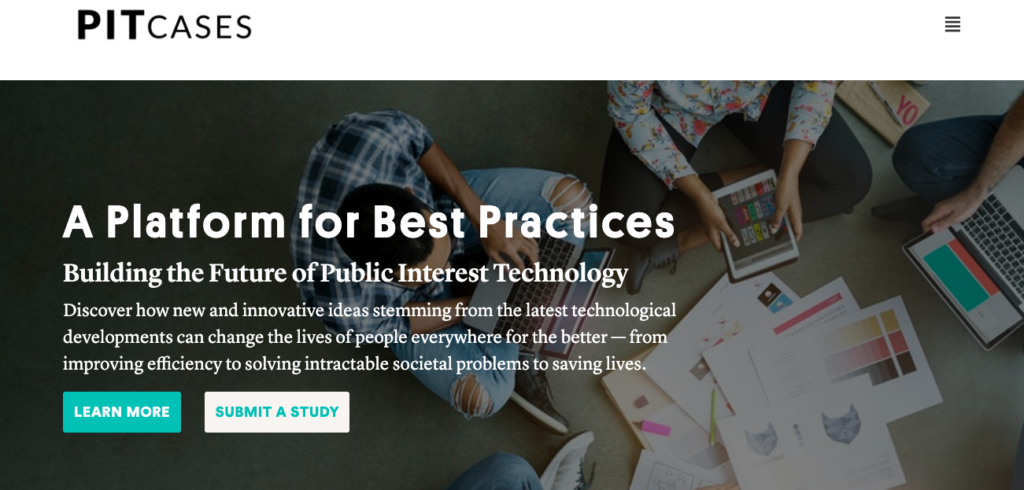Public Interest Technology University Network Projects
Member/Grantee
Howard University
Author
Dana McCalla, M.A., doctoral student in the Department of Sociology and Criminology
Project
PitCases.org, a PIT-UN Project Reflection
Contributing to the Public Interest Technology University Network (PIT-UN) case study project, which would become pitcases.org, was a challenging and rewarding research experience overall. I joined as a graduate student fellow on the Howard University team at the onset of the COVID-19 pandemic, which coincided with widespread campus closures and a national quarantine.
The task of recruiting participants for the project therefore became a challenge largely due to the uncertainty surrounding the pandemic and what it would mean for our school and other universities around the country.

Overcoming Challenges
Initial attempts to contact faculty at Howard were unsuccessful as many were unresponsive or did not consider their course content to fit the parameters of the public interest technology project. However, after PIT-UN provided us with a small list of interested participants, I was able to get in contact with a faculty member from Boston University to start developing the first of three case studies.
Professor Ziba Cranmer was eager to submit a case study of her BU Spark! technology incubator and experiential learning lab. This first case study took about two months to complete from start to finish. Fortunately, I was able to consult with some of the other investigators and student fellows across the network and use previously published case studies as a model for my own. I took away some important lessons that helped to improve my data collection for the remaining two case studies, which came from Howard University professors.
Over the year that was spent building the case study platform, the biggest challenges were:
- Coordinating around participants’ time
- Logistic constraints
- Maintaining their interest using purely virtual communication
My third case study on Howard Professor Catherine Quinlan’s culturally representative STEM curriculum, for example, required a good deal of time and background research to complete, even after scheduling three hourlong interviews, because of the scope of her curriculum and conflicts in grant commitments with another institution.
The second case study highlighting Professor Wei Sun’s virtual ethnography communications course involved a less arduous data collection process, however the content was being collected from a class that was being taught in real time. As a result, the student deliverables were not available until later on in the fall semester and the professor’s insights on the course could not be offered until most of the course was complete. Ultimately, it was important to work with the participants in ways that were most convenient for them.
Time Well Spent
I gained valuable qualitative research skills from my contributions to this PIT-UN project
and I was able to apply my sociological training to this work.
Overall, I gained valuable qualitative research skills from my contributions to this PIT-UN project and I was able to apply my sociological training to this work. The position required patience, flexibility, creativity, and coordination, but each of the case studies that I worked on produced meaningful public interest outcomes. That was both motivating and gratifying for me throughout the process. I look forward to potentially working on future projects that are developed by PIT-UN.
